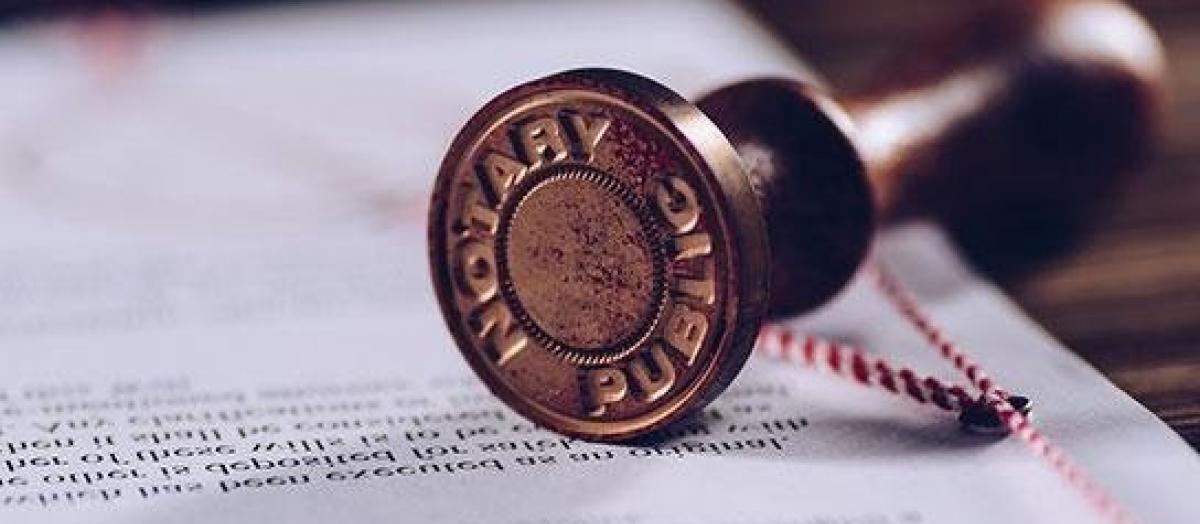Debunking Notarial Job: Simplifying the Function and Significance of Notaries
In the elaborate web of legal documentation and confirmation, notaries stand as columns of assurance and credibility. Their duty, commonly shrouded in enigma for many, brings considerable weight in ensuring the credibility and honesty of crucial files. As guardians of legitimacy and truth, notaries play a crucial part in our society, yet their work is not constantly totally recognized. By deciphering the intricacies surrounding notarial methods and shedding light on the significance of their acts, a more clear understanding arises of the crucial function notaries play in upholding the material of lawful and legal agreements.
The History of Notarial Job
The history of notarial work dates back to ancient civilizations, where scribes played an essential function in recording important details and validating records. This led to the advancement of notaries, individuals appointed by the state to act as unbiased witnesses in legal matters.
Throughout the Middle Ages, notaries acquired prestige in Europe, with their features broadening to consist of composing lawful files, licensing signatures, and preserving documents. The increase of international trade better emphasized the significance of notarial operate in verifying contracts and arrangements throughout borders.
In the modern-day period, notaries continue to play an important function in legal and service deals by validating identities, verifying the authenticity of documents, and preventing fraud. Their role in certifying the credibility of contracts adds a layer of security and depend on to the ever-evolving landscape of business and legislation.

Responsibilities and Responsibilities of Notaries
The historic evolution of notarial job from old human beings to the contemporary period has actually shaped the unique responsibilities and responsibilities that notaries promote in legal and company transactions today. Notaries play a vital function in verifying the authenticity of files and the identification of signatures. Among their primary responsibilities is to witness the signing of important documents, such as wills, contracts, and acts, to make sure that all parties are becoming part of contracts purposefully and voluntarily. Notaries also confirm that signatories are of audio mind and not under duress or threat.
In addition, notaries are charged with administering affirmations and vows, which are crucial in legal process and the execution of sworn statements. They license copies of original documents, offering assurance to establishments that the duplicates are true replicas of the originals. Notaries need to preserve precise documents of all transactions they look after to make certain transparency and accountability. In general, the tasks and obligations of notaries are essential in safeguarding the stability and validity of various records and transactions.
Notarial Certificates and Signatures
Exemplifying careful focus to detail, notarial certificates and signatures serve as crucial parts in confirming the authenticity of lawful files. Notarial certifications commonly have crucial information such as the date of registration, the names of the signatories, a summary of the file, and the notary's official seal. These certificates offer a clear document of the notarial act, making certain that the record can be conveniently determined and traced back to the notary who managed the procedure.
Signatures play a crucial duty in notarial work, as they symbolize the contract and authorization of the parties involved. Notaries meticulously witness the signing of papers to verify the identification of the signatories and verify image source that they are signing of their very own free choice. By attaching their main seal and signature to the record, notaries certify that the required treatments have actually been adhered to and that the paper is enforceable and valid.
Essentially, notarial certifications and trademarks are the characteristic of authenticity in legal purchases, offering assurance to all events included that the documents are legitimate and binding.
Relevance of Notarial Acts

Registration Process Described
Explaining the notarization process provides clearness on the necessary actions entailed in confirming lawful documents. The registration procedure usually starts with the specific offering the paper to a notary public. The notary after that validates the endorser's identification with acceptable identification techniques. As soon as the identification is validated, the notary guarantees that the individual authorizing the record does so voluntarily and without any type of threat.
:max_bytes(150000):strip_icc()/GettyImages-598314157-cb6389c9e28f4c1aaf002263febab019.jpg)
Verdict
Notarial certifications normally include vital information such as the date of notarization, the names of the signatories, a summary of the record, and the notary's main seal. These certifications provide a clear document of the notarial act, making sure that the paper can be conveniently identified and traced back to the notary that oversaw the process.
By attaching their official seal and signature to the paper, notaries license that the essential treatments have actually been adhered to and that the paper is legitimate and enforceable.
By confirming the identification of the signatories, confirming their determination to enter right into the arrangement, and licensing the day and area of the signing, notaries play a vital duty in promoting the credibility of legal documents.After the file is signed, the notary will fasten their official seal or stamp onto the document.